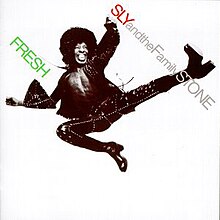
Maggot Brain is the third studio album by the American funk rock band Funkadelic, released by Westbound Records in July 1971. It was produced by bandleader George Clinton and recorded at United Sound Systems in Detroit during late 1970 and early 1971. The album was the final LP recorded by the original Funkadelic lineup; after its release, founding members Tawl Ross (guitar), Billy Nelson (bass), and Tiki Fulwood (drums) left the band for various reasons.
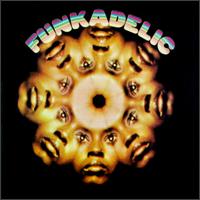
Funkadelic is the debut album by the American funk rock band Funkadelic, released in 1970 on Westbound Records.

Sly and the Family Stone was an American band originating from San Francisco, California. Active from 1966 to 1983, they were pivotal in the development of funk, soul, R&B, rock, and psychedelic music. Their core line-up was led by singer-songwriter, record producer, and multi-instrumentalist Sly Stone, and included Stone's brother and singer/guitarist Freddie Stone, sister and singer/keyboardist Rose Stone, trumpeter Cynthia Robinson, drummer Greg Errico, saxophonist Jerry Martini, and bassist Larry Graham. The band was the first major American rock group to have a racially integrated, mixed-gender lineup.

Soldier is the fourth studio album by American rock singer Iggy Pop. It was released in February 1980 by record label Arista.
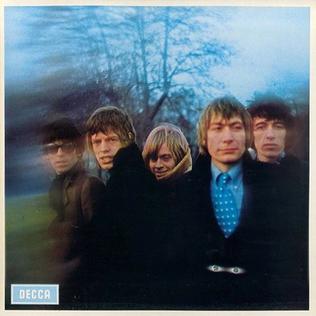
Between the Buttons is the fifth British and seventh American studio album by the English rock band the Rolling Stones, released on 20 January 1967 in the UK and on 10 February in the US. Reflecting the band's brief foray into psychedelia and baroque pop balladry during the era, the album is among their most eclectic works; multi-instrumentalist Brian Jones frequently abandoned his guitar during the sessions in favour of instruments such as organ, marimba, dulcimer, vibraphone, trumpet, and kazoo. Keyboard contributions came from two session players: former Rolling Stones member Ian Stewart and frequent contributor Jack Nitzsche. Between the Buttons would be the last album produced by Andrew Loog Oldham, who had to this point acted as the band's manager and produced all of their albums.
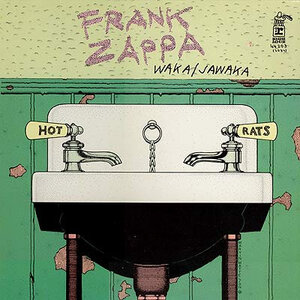
Waka/Jawaka is the fourth solo album, fifteenth album counting the work of his band the Mothers of Invention, by Frank Zappa, released in July 1972. The album is the jazz-influenced precursor to The Grand Wazoo, and as the front cover indicates, a sequel of sorts to 1969's Hot Rats. According to Zappa, the title "is something that showed up on a ouija board at one time."
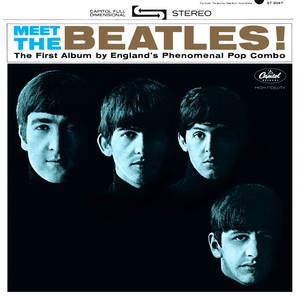
Meet the Beatles! is a studio album by the English rock band the Beatles, released as their second album in the United States. It was the group's first American album to be issued by Capitol Records, on 20 January 1964 in both mono and stereo formats. It topped the popular album chart on 15 February 1964 and remained at number one for eleven weeks before being replaced by The Beatles' Second Album. The cover featured Robert Freeman's iconic portrait of the Beatles used in the United Kingdom for With the Beatles, with a blue tint added to the original stark black-and-white photograph.

The Early Beatles is the Beatles' sixth album released on Capitol Records, and their eighth album overall for the American market. All of the tracks on this album had previously been available on the Vee-Jay Records release Introducing... The Beatles, issued in January, 1964. The front cover photo for this album features the same back cover photo for the British LP Beatles for Sale.
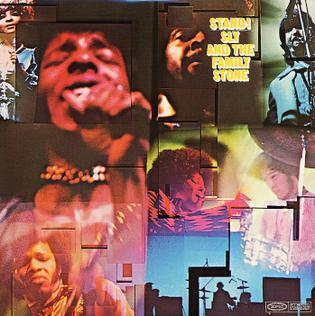
Stand! is the fourth album by soul/funk band Sly and the Family Stone, released in April 1969. Written and produced by lead singer and multi-instrumentalist Sly Stone, Stand! is considered an artistic high-point of the band's career. Released by Epic Records, just before the group's celebrated performance at the Woodstock festival, it became the band's most commercially successful album to date. It includes several well-known songs, among them hit singles, such as "Sing a Simple Song", "I Want to Take You Higher", "Stand!", and "Everyday People". The album was reissued in 1990 on compact disc and vinyl, and again in 2007 as a remastered numbered edition digipack CD with bonus tracks and, in the UK, as only a CD with bonus tracks.

Greatest Hits is a compilation album by the American group Sly and the Family Stone. It was first released on November 21, 1970, by Epic Records. The album includes all of the singles from the albums Dance to the Music (1968), Life (1968), and Stand! (1969).

Small Talk is the seventh album by Sly and the Family Stone, released by Epic/CBS Records in 1974. This album was the final LP to feature the original Family Stone, which broke up in January 1975.

Second Helping is the second studio album by Lynyrd Skynyrd, released on April 15, 1974. It features the band's biggest hit single, "Sweet Home Alabama", an answer song to Neil Young's "Alabama" and "Southern Man", which reached #8 on the Billboard Hot 100 chart in August 1974.
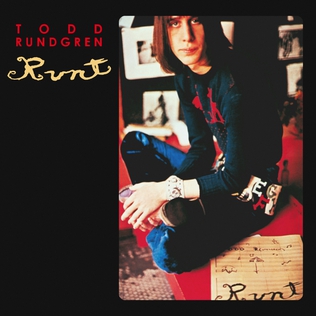
Runt is the self-titled debut album of the band Runt, commercially released September 1970. Runt was a trio consisting of Todd Rundgren, Hunt Sales (drums), and Tony Fox Sales (bass). The entire album was written and produced by Rundgren, formerly of Nazz, and he performed most of the instruments. Many regarded Runt as Rundgren's debut solo album, and later reissues credit the album to Rundgren rather than to the group.
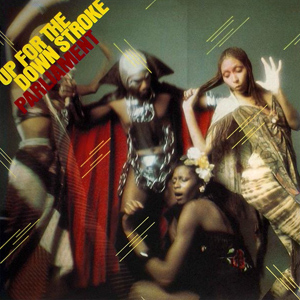
Up for the Down Stroke is an album by the American funk band Parliament. It was the band's second album, and their first to be released on Casablanca Records. The album was released on July 3, 1974. Its title track was Parliament's first chart hit and remains one of the most well-known P-Funk songs. The album also contains a funk reworking of The Parliaments' song "(I Wanna) Testify" under the title "Testify". The original title of the album was Whatever Makes Baby Feel Good, and the cover featured group leader George Clinton hovering over a woman in distress, sporting a black wig and monster-type gloves.
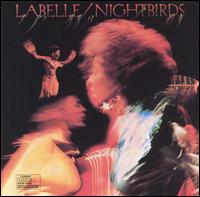
Nightbirds is an album by the all-female singing group Labelle, released in 1974 on the Epic label. The album features the group's biggest hit, the song "Lady Marmalade," and it became their most successful album to date.

"If You Want Me to Stay" is a 1973 hit single by Sly and the Family Stone, from their album Fresh.

Open Our Eyes is the fifth studio album by American band Earth, Wind & Fire, released on March 25, 1974 on Columbia Records. The album rose to No. 1 on the Billboard Top Soul Albums chart and No. 15 on the Top Pop Albums chart. Open Our Eyes has been certified Platinum in the US by the RIAA.

Hard Again is a studio album by American blues singer Muddy Waters. Released on January 10, 1977, it was the first of his albums produced by Johnny Winter. Hard Again was Waters's first album on Blue Sky Records after leaving Chess Records and was well received by critics.

Lanquidity is a 1978 studio album by American jazz musician Sun Ra.

There's a Riot Goin' On is the fifth studio album by American funk and soul band Sly and the Family Stone. It was recorded from 1970 to 1971 at Record Plant Studios in Sausalito, California and released later that year on November 1 by Epic Records. The recording was dominated by band frontman/songwriter Sly Stone during a period of escalated drug use and intra-group tension.
